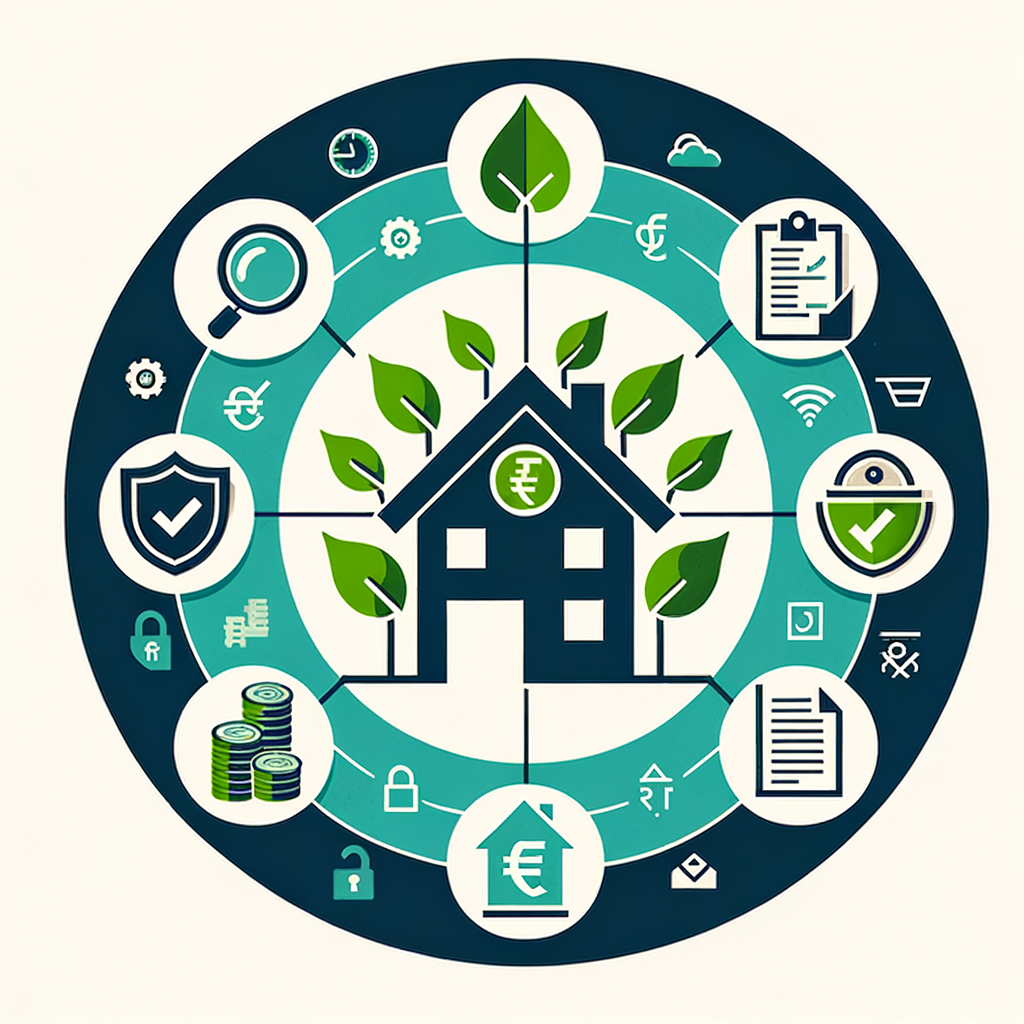What role does environmental due diligence play in real estate transactions?
Buying property in India is a significant milestone, whether for your business or your family. You diligently perform financial and legal checks, but what about the health of the land itself? Hidden environmental hazards can turn a dream investment into a costly liability. This is precisely where the process of environmental due diligence real estate comes into play. It’s a critical investigation into a property’s environmental history and its current condition, serving as a protective shield for your investment. For small business owners and individual buyers, understanding the role of environmental due diligence in real estate is no longer an optional extra—it’s an essential step for protecting your finances, health, and legal standing in the long run. This comprehensive guide will break down everything you need to know about this vital aspect of due diligence in real estate transactions India.
What is Environmental Due Diligence in Real Estate Transactions?
Before diving into its importance, it’s crucial to understand what environmental due diligence actually entails. Think of it less as a bureaucratic hurdle and more as a detailed background check on the land you intend to purchase. This proactive investigation aims to uncover any potential environmental risks that could affect the property’s value, your legal obligations, and the safety of its future occupants.
Defining Environmental Due Dilisgence (EDD)
At its core, Environmental Due Diligence (EDD) is a formal risk assessment process designed to identify potential environmental contamination and liabilities associated with a parcel of real estate. The simplest way to understand it is to think of it as a “health check-up” for the land. Just as a doctor checks a patient’s medical history and current vitals, an environmental consultant examines the property for any signs of trouble. This investigation looks for issues like soil or groundwater contamination from past industrial use, the presence of hazardous materials like asbestos or lead paint in old buildings, underground storage tanks that might be leaking, and the property’s overall compliance with current environmental laws and regulations. The goal is to provide the buyer with a clear picture of the environmental health of the property before the purchase is finalized, preventing any unwelcome and expensive surprises down the line.
Why EDD is Crucial in the Indian Context
In India, the need for thorough environmental due diligence is becoming increasingly critical. With the nation’s rapid industrialization and a growing history of manufacturing and commercial activities, many plots of land, especially in urban and semi-urban areas, may have been exposed to potentially contaminating activities in the past. Simultaneously, India’s environmental regulations are becoming more stringent. The principle of “polluter pays” is well-established, but importantly, current landowners can often be held responsible for cleaning up historical contamination, even if they were not the ones who caused it. This reality underscores the growing environmental due diligence importance India for any savvy investor or buyer. Failing to conduct this check can leave you legally and financially liable for the environmental mistakes of previous owners, making EDD an indispensable part of modern real estate transactions.
The Critical Role of Environmental Due Diligence in Real Estate
The decision to conduct an EDD is not merely about ticking a box; it has a profound and direct impact on the financial, legal, and physical aspects of your real estate investment. It empowers you with knowledge, protects you from unforeseen liabilities, and ultimately ensures the long-term viability of your purchase.
Identifying and Mitigating Financial Risks
One of the most significant benefits of EDD is its ability to uncover and help mitigate substantial financial risks. Undiscovered contamination, such as chemical spills or improperly disposed industrial waste, can lead to massive cleanup costs mandated by state Pollution Control Boards or the National Green Tribunal. These remediation expenses can often run into lakhs or even crores of rupees, completely eclipsing the initial investment. Furthermore, the presence of contamination causes what is known as “diminution in value”—it can significantly lower a property’s market price and make it incredibly difficult to sell in the future. Imagine a small business buying a plot for a new workshop, only to discover chemical seepage from a previous tenant. They would now be liable for an expensive and time-consuming cleanup process, derailing their business plans. This scenario vividly illustrates the direct impact of environmental due diligence on real estate value and your financial health.
Ensuring Legal and Regulatory Compliance
India has a robust framework of environmental laws, including The Environment (Protection) Act, 1986; the Water (Prevention and Control of Pollution) Act, 1974; and various waste management rules. Owning a property that is not in compliance with these regulations can expose you to heavy fines, legal battles, and even operational shutdowns for businesses. An EDD process thoroughly assesses the property’s compliance status, checking for necessary permits, consents, and authorizations. This ensures you are not inheriting any existing legal violations from the previous owner. It helps you avoid entanglement in complex litigation and ensures your future use of the property aligns with all regulatory requirements, saving you immense time and resources. This legal and regulatory scope also extends to tax obligations, and buyers should be familiar with requirements like Section 194IA: TDS on Purchase of Immovable Property.
- Actionable Tip: As a preliminary check, you can often visit your state’s Pollution Control Board website to search for any enforcement actions or compliance issues related to the property or its immediate neighbours. For comprehensive official information, the central government’s Ministry of Environment, Forest and Climate Change (MoEFCC) portal is an invaluable resource.
Protecting Health and Safety
Beyond the financial and legal implications, environmental due diligence plays a vital role in protecting the health and safety of people. The human element is paramount. Contaminated soil or groundwater can pose serious, long-term health risks to your employees, customers, or family members. For instance, soil contaminated with heavy metals like lead or mercury can have severe neurological effects, while polluted groundwater can render the local water supply unsafe for consumption. Similarly, older buildings may contain hazardous materials like asbestos in insulation or lead in paint, which, if disturbed during renovation, can release toxic particles into the air. EDD identifies these potential hazards, allowing you to take corrective action and ensure the property is a safe environment for everyone who will use it.
Securing Bank Loans and Insurance
In today’s risk-averse financial climate, banks and lending institutions are becoming more cautious. They are increasingly mandating an environmental assessment real estate transactions India before they approve commercial or industrial property loans. Lenders conduct their own EDD or require the borrower to provide a report to protect their investment. If a property is found to be contaminated, its value as collateral is significantly diminished, posing a risk to the lender. A clean EDD report can therefore streamline the loan approval process. Similarly, insurance companies may be hesitant to provide coverage for a property with known or potential environmental liabilities, or they may charge significantly higher premiums. Proactively conducting an EDD demonstrates responsibility and can make securing favourable financing and insurance terms much easier.
The Environmental Due Diligence Process: A Step-by-Step Guide
The EDD process is typically conducted in phases, with each subsequent phase being more intensive and only initiated if the previous one uncovers potential issues. This structured approach makes the process efficient and cost-effective.
Phase I Environmental Site Assessment (ESA)
This is the most common and fundamental first step in the EDD process. A Phase I ESA is a non-intrusive investigation designed to identify potential or existing environmental contamination liabilities. For a majority of property transactions, a clean Phase I report is sufficient to proceed with confidence. This phase generally includes three key components:
- Records Review: Consultants delve into historical and current government records, property titles, historical aerial photographs, and land-use maps. The goal is to understand the property’s past usage—was it ever a factory, a gas station, a dry cleaner, or a farm where pesticides were heavily used?
- Site Reconnaissance: This involves a thorough physical inspection of the property and its immediate surroundings. The consultant walks the entire site, looking for visual or olfactory evidence of contamination, such as stained soil, stressed vegetation, strange odours, waste drums, or the presence of underground or above-ground storage tanks.
- Interviews: The assessment includes interviews with past and present owners, operators, occupants, and even neighbours. These conversations can often reveal crucial information about historical spills, waste disposal practices, or other activities that might not be apparent from records or a physical inspection alone.
Phase II Environmental Site Assessment (ESA)
A Phase II ESA is only recommended if the Phase I assessment identifies “Recognized Environmental Conditions” (RECs)—essentially, red flags that suggest contamination might be present. This phase is an intrusive investigation that involves physical sampling to confirm or deny the presence and extent of hazardous substances. The process typically involves:
- Sample Collection: Environmental professionals collect physical samples of soil, groundwater, surface water, or even building materials (like asbestos or lead paint) from specific areas of concern identified in Phase I.
- Laboratory Analysis: These samples are sent to a certified laboratory for detailed chemical analysis to identify the specific contaminants and their concentration levels. The results provide definitive proof of whether the property is contaminated and if those levels exceed regulatory safety standards.
Who Performs Environmental Due Diligence in India?
Environmental due diligence is a specialized field that requires technical expertise and a deep understanding of environmental science and regulations. In India, EDD is conducted by qualified environmental consultants, scientists, and specialized engineering firms. These professionals have the training and equipment necessary to conduct thorough site assessments and interpret the complex data they gather. Choosing a reputable and experienced firm is crucial to ensure the accuracy and reliability of the assessment. At TaxRobo, our network of legal and financial experts can help connect you with vetted environmental professionals to seamlessly manage the entire process of due diligence in real estate transactions India, ensuring all bases are covered.
Conclusion: Make Environmental Due Diligence a Non-Negotiable Step
In summary, environmental due diligence is a cornerstone of any prudent real estate transaction in India today. It serves as your primary defense against inheriting costly environmental liabilities, ensuring you don’t have to pay for the mistakes of the past. By conducting a thorough assessment, you mitigate immense financial risk from potential cleanup costs, ensure your property is fully compliant with India’s stringent environmental laws, and most importantly, safeguard the health and safety of everyone who will set foot on the property. In today’s market, comprehensive environmental due diligence real estate is not a luxury reserved for large corporations; it is a fundamental and non-negotiable part of a smart property investment strategy for every small business owner and individual buyer.
Don’t let hidden environmental liabilities derail your real estate goals or turn your dream property into a financial nightmare. Before you finalize your purchase, ensure you have the complete picture. Partnering with an Expert Commercial Real Estate Consultant: Maximize Your Investment & Minimize Risks can be invaluable. Contact TaxRobo today for comprehensive guidance on all aspects of your property transaction, from financial checks to legal and environmental due diligence.
Frequently Asked Questions (FAQs)
1. Is environmental due diligence legally mandatory for all properties in India?
While it is not legally required for every single transaction (like buying a flat in an existing residential building), it is a standard best practice and is often required by lenders for commercial, industrial, and large tracts of agricultural land. It is highly recommended for any property with a known, suspected, or even unknown industrial history to protect the buyer from future liability.
2. What happens if contamination is found during the EDD process?
Finding contamination doesn’t always have to be a deal-breaker. In fact, it provides you with crucial information and significant leverage in negotiations. You can discuss options with the seller, such as: (a) requesting that they clean up the property to regulatory standards before the sale is completed, (b) negotiating a reduction in the purchase price to offset the cleanup costs you will incur, or (c) including specific indemnities in the sale agreement. Understanding the seller’s perspective, including their awareness of the Tax Implications When Selling Property: What to Know, can also strengthen your negotiating position. In the worst-case scenario, it allows you to walk away from the transaction, saving you from a future financial and legal disaster.
3. I’m a salaried individual buying an apartment. Do I need to worry about EDD?
Typically, for a large residential project, the developer is responsible for conducting the EDD for the entire parcel of land before construction begins. However, as a savvy buyer, you have the right to ask the developer to share the Environmental Impact Assessment (EIA) or EDD report for the project. Reviewing this document can give you peace of mind, assuring you that the land your home is built on is safe, compliant, and free from long-term environmental risks.
4. How long does an environmental due diligence process take?
The timeline can vary based on the scope of the assessment. A standard Phase I Environmental Site Assessment (ESA) typically takes about 2 to 4 weeks to complete, from initiation to the final report. If the Phase I report recommends a Phase II assessment due to potential concerns, this more intensive investigation can take an additional 4 to 6 weeks or even longer, depending on the complexity of the site and the laboratory testing involved. It is wise to factor this potential timeline into your overall property transaction schedule.



